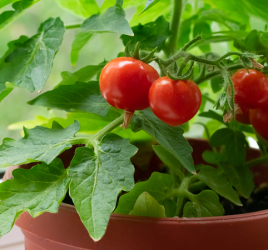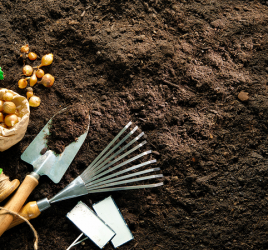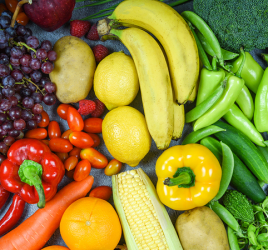Organic Gardening with Children: Amazing Benefits and Tips
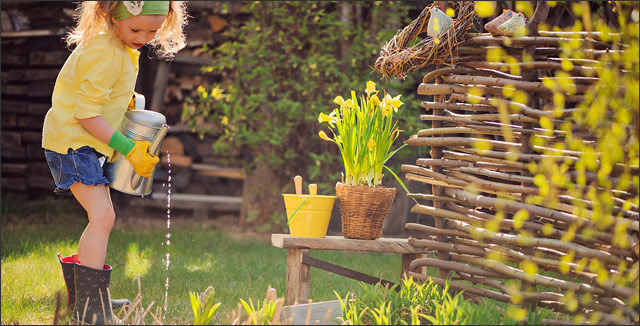
Inviting children to enter into the gardening experience with you can be one of the greatest gifts that you can offer them. The lessons that they will gain are endless.
Children are naturally curious and eager to get their hands dirty, making a garden a natural choice for a place to learn about the life cycle of plants, become environmentally aware, and feel empowered to create and grow their own food.
Not only can gardening be a great place to learn, it can also develop a special bond between you and your children. Let’s take a look into the incredible benefits of gardening with your children and some addition tips and activities that will make partnering with them easy and fun.
Benefits of Gardening with Children
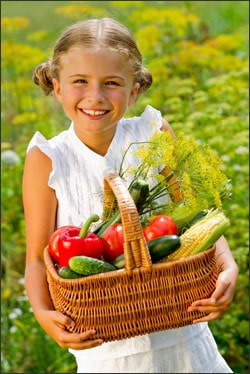
Choosing to garden with your children helps to teach responsibility, cause and effect lessons, provide physical activity, and offers your children self-confidence. When a child is empowered to garden they can take ownership and see firsthand benefits of their own labor.
Here are a few other benefits that a child can gain from gardening according to the Children Nature Network:
“Gardening provides different forms of engagement for children, including designing, planting, and maintaining gardens; harvesting, preparing, and sharing food; working cooperatively in groups; learning about science and nutrition; and creating art and stories inspired by gardens.”
On top of all these amazing benefits, you will create a special bond that will be created through the time you will have with your child, the joy of harvesting a crop, and see the fruit of both of your labor.
Tips for Organic Gardening with Children
When it comes to gardening with children, having them experience firsthand the beauty of working the land is the best way to encourage them.
One way to encourage empowerment is to offer a child their own section in a garden. Give them the opportunity to choose what they would like to grow. Teach them to toil the earth and prepare the plants, to water, and to weed, and then harvest their own garden themselves. Children as young as two and three can enter into this type of garden experience.
Encourage plants that have short growth cycles. A few examples of plants that are great to start with are sweet peas, radishes, and sunflowers. These plants grow and flower pretty quickly, encouraging your child to see the full life cycles and allow you to start even from seed.
Other plants that are exciting for children to grow are pumpkins although they can take a long time, tomatoes, carrots and cucumbers, but having your child choose what they want to grow will always be the best way to create ownership.
One of the best ways to help children learn is to start from seeds. When starting plants from seeds, children are able to see the full life cycle, learn the potential in a seed, and begin to recognize the difference between plants.
Have your child help you plant a Rootstick. This is a direct to root watering system that is designed to will help to make sure the roots are getting enough water, oxygen, and nutrients. Your child will learn about the importance of watering, the need to water roots, and how the growth system of plants work.
Make it fun!
Doing activities that help make the experience fun is a great way to keep engagement.
One fun activity you can do with your child is create letters using seeds. Children can cut out from paper towel their name or maybe the first letter in their name. You can use lettuce, spinach, and even broccoli seeds, and then water. Within a month your child will be able to see spouts grow into the shape of their name. This is a super fun way to learn letters, while also seeing the life cycle of plants. You can harvest the sprouts and place on sandwiches to eat. It is also an activity that you can do indoors.
Another great lesson to do with children is to teach compost and the decomposition process. One great way to do this is by find fun ways to reuse products in your home. A paper towel roll makes a great seedling starter, as well as, a toilet paper roll. After planning your seed, you can place them directly into the ground and let the paper towel roll decompose directly into the ground. This is a great way to teach children the beginning steps to decomposition, recycling, composting, and being environmentally aware.
A third great experience for your children is to help you cook with what they created in a garden. You can make salsa or pasta sauce from tomatoes, pesto from your basil, or simply just cut up a cucumber or sweet peas and eat it plain. The joy of seeing what you grow to how it can nourish our bodies will be a lesson they take with them forever.
Favorite Gardening Books for Children
- Tops and Bottoms by Janet Stevens
- The Carrot Seed by Ruth Krauss
- The Tiny Seed by Eric Carle
- Planting a Rainbow by Lois Ehlert
- The Curious Garden by Peter Brown
- From Seed to Plant by Gail Gibbons
- Garden to Table by Katherine Hengel
- Jack’s Garden by Henry Cole
- The Little Gardener (Teenie Greenies) by Jan Gerardi
- Up in the Garden and Down in the Dirt by Kate Messner
Children Gardening Resource Books
- Garden and Crafts for Children by Dawn Isaac
- Gardening Projects for Kids by Jenny Hendy
- The Book of Gardening Projects for Kids by Whitney Cohen
- Gardening Lab for Kids by Renata Fossen Brown
Take Away
Gardening with your children can be one of the most rewarding experiences that you can have, and one of the most precious gifts you can give them.
Do you garden with your children? What is one of your favorite books to read with your child about gardening? We would love to hear your thoughts.

